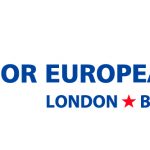The expansion of the EU to 35+ member-states poses significant challenges to its institutional structure and decision-making processes. Areas requiring unanimity, such as foreign policy and taxation, could well be disrupted by greater use of vetoes or threats of vetoes. Moving away from unanimity to qualified majority voting (QMV) is a potential solution to enhance decision-making efficiency. However, this shift would be complex and faces much resistance, especially from smaller member-states concerned about losing influence. The EU has mechanisms like passerelle clauses and constructive abstention that can facilitate a shift towards QMV without requiring full treaty change. At the same time, these options are limited and often require unanimous agreement for activation. Combining enlargement with ‘differentiated integration’, whereby different membership tiers have different benefits and distinct institutional rules, could make decision-taking smoother. However, it would not fully resolve the problem that enlargement will make decision-making harder, especially in areas such as taxation or the Common Foreign and Security Policy (CFSP).
Author: Zselyke Csaky, Senior Research; Charles Grant, Director -Centre for European Reform.
This article is available on the Centre for European Reform.



